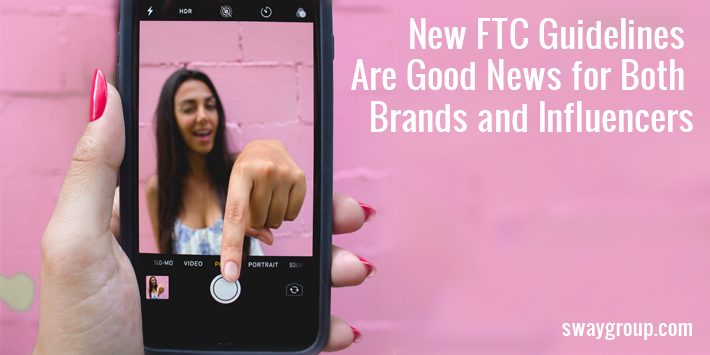It’s always important to stay current with the FTC’s legal requirements for influencer marketing disclosures, and if you haven’t seen them, there have been some updates to their official set of guidelines.

Under the recently-added clarifications for how to disclose an endorsement on social media, the FTC says the following:
- You can’t talk about your experience with a product you haven’t tried.
- If you’re paid to talk about a product and thought it was terrible, you can’t say it’s terrific.
- You can’t make up claims about a product that would require proof the advertiser doesn’t have – such as scientific proof that a product can treat a health condition.
This seems like common-sense stuff — but of course the rules are there for a reason! While it may be tempting as an influencer to stretch the truth in the post in order to make a paying brand happy, it’s never worth being in hot water with the FTC. Plus, audiences don’t like being fooled, and aren’t likely to stick around when the content isn’t completely authentic.
At Sway Group, we have always followed FTC regulations for influencers to the letter. It’s part of our rigorous QA process to make sure our brand and influencer partners are 100% compliant with disclosure guidelines, not just because it’s the law, but because it’s the right thing to do.
We would never ask our influencers to post about products they haven’t tried, nor would we require that they share a positive review when that doesn’t match their experience. We always offer the chance to opt out of a campaign if an influencer doesn’t feel comfortable promoting a brand, and influencers are never stopped from sharing their honest opinion.
It’s our hope that with ongoing efforts by the FTC, brands, agencies, and influencers, the influencer marketing industry will continue to evolve towards a place of trustworthy content and rewarding recommendations and reviews for every audience.
